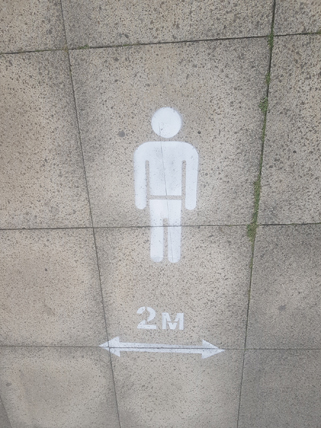The continuing need for social distancing rules, and the wearing of masks in enclosed yet public spaces such as shops, shopping centres and buses and trains, at least has focused on how, and how well, Britain enforces good (as opposed to anti-social) behaviour, writes Mark Rowe.
A striking feature of how Britain has sought to manage the months since lockdown, has been that no-one, even the police, have sought the title of ‘covid police’. Hence my recent question: is anyone the covid police?
For a long time, if not forever, the police have not been able to maintain law and order by themselves; hence the volunteer special constabulary, commissionaires, store detectives and doormen; and more recently neighbourhood watch schemes and, in the West Midlands, Street Watch, an interesting link between passive neighbourhood watches (the proverbial Mrs Bucket-like ‘curtain twitchers’) and patrollers with police, or police-like powers, under the Community Safety Accreditation Scheme (CSAS).
John Hayward-Cripps, CEO of the Neighbourhood Watch Network has defended watch schemes, pointing out for one thing that ‘Watch volunteers make an impact not just on crime prevention but also on community cohesion and supporting the vulnerable’.
Briefly, Street Watch according to the West Midlands Police ‘can be considered a natural extension to schemes such as Neighbourhood Watch’. Police have taken care to address the difficulties – on the one hand, wanting public support; on the other, risking untrained or little-trained citizens getting into trouble or mischief, while wearing the police badge on their lemon high-visibility jackets. Police describe them as ‘ordinary citizens with no police powers’, who are there to deter crime, and to be non-confrontational if they see something – to look, listen and report, but explicitly not to ‘have a go’.
As a significant example, while Street Watch patrollers can wear body-worn video (BWV) cameras if they wish, and some volunteers did ask for BWV, the West Midlands force does not issue body-worn to the patrollers, even though police wear such cameras as an aid to gathering evidence and deterring confrontation. The police rationale; patrollers aren’t meant to get into a situation in the first place, where switching on BWV would de-escalate a situation.
If in doubt, call the police, is the advice to Street Watch schemes; patrollers go out in pairs – on foot, never by vehicle as that could complicate their work – and must carry at least one mobile phone between them.
Likewise, commenting for police nationally on September 22, Martin Hewitt, the chair of the National Police Chiefs’ Council, said that police ‘will play their part in supporting the public to navigate the measures in place for our safety’, implicitly and explicitly stating that others, ‘individuals, businesses and households’ have a part to play too.
While diluting the police’s responsibility, he at the same time kept enforcement of the law in the police’s hands; if the ‘public are concerned that the law is being broken or they are experiencing anti-social behaviour, they can report this to the police, who will consider the most appropriate response’. Again, he gave out no hope that every ‘covid criminal’ will be brought to book; for police ‘will target the most problematic behaviour’ and ‘only issue fines as a last resort’. As earlier during the return to public spaces from June after the months of lockdown, police ask for breaches of covid rules to be reported online, ‘wherever possible, and 999 should only be used in an emergency’.
Those retail loss prevention officers and others who detain a shop thief who wait an hour or more or forever for police attendance can judge how efficacious it is to report an offence online. In brief, lack of official action over a social distancing or face covering non-wearing offence is only of a piece with under-recording of low-level or at least commonplace crimes such as littering, on-street drug-dealing and drunkenness, aggressive begging and (spiking after lockdown) fly-tipping.
Quite how many people are defying social distancing and mask-wearing rules is hard to say.
On Wednesday, September 16, Wigan Council’s regulatory services officers and Greater Manchester Police (GMP) officers visited three supermarkets in Leigh, and reported that 479 out of 532 shoppers were ‘taking the appropriate safety measure’, and of the 53 that were not wearing any facial protection, 24 had valid exemptions. The authorities did not say what if anything happened to the 29 not playing their part (while infection rates in the borough were rising).
More patrols in the borough by the council and GMP are planned. However, as with any patrol or operation, the question is whether the enforcement officers are like patrolling ships; once they pass and the wash subsides, the sea is as before.










